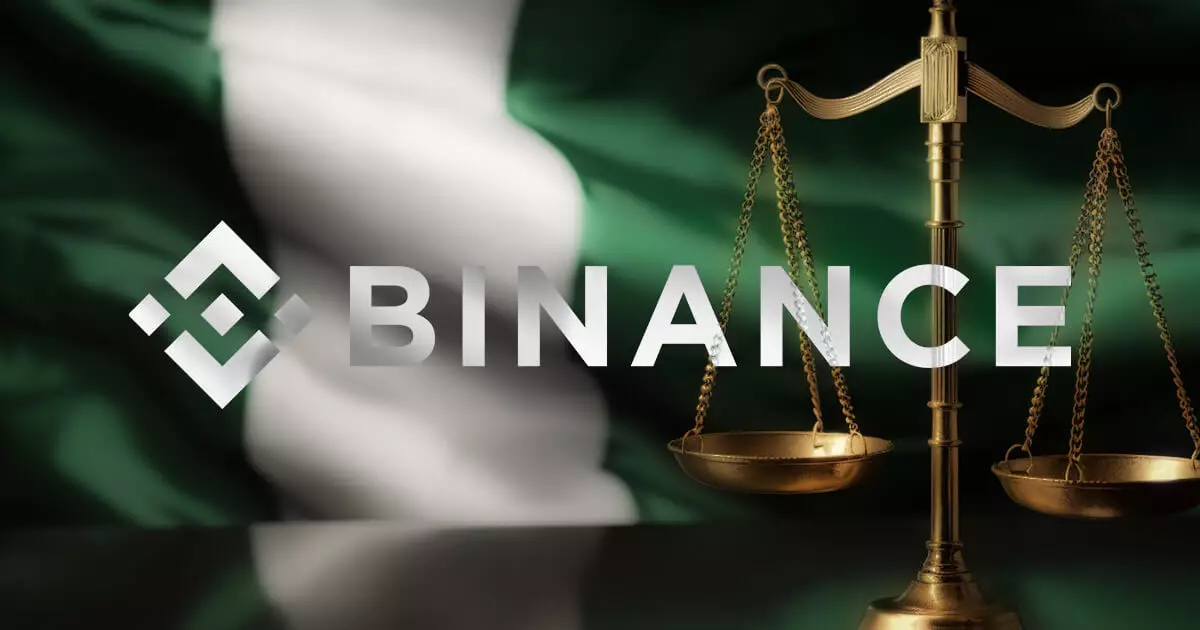In a groundbreaking move, Nigeria’s Federal Inland Revenue Service (FIRS) has filed a legal challenge against Binance Holdings Limited, seeking a staggering $81 billion in unpaid taxes and associated penalties. This figure includes a significant portion—$79.5 billion—claimed as economic damages, alongside N231 million (approximately $153,223) attributed to Binance’s operations in the nation. Furthermore, the FIRS demands nearly $2 billion in pending income tax for the years 2022 and 2023. This aggressive stance is indicative of a broader regulatory framework tightening around cryptocurrency companies in Nigeria and could set a significant precedent for future cases involving crypto entities across the globe.
The tax claim from FIRS is not only substantial but also astonishingly higher than the $4.3 billion penalty wielded against Binance by U.S. regulators last year. If this demand is upheld, it would solidify itself as the largest financial penalty ever levied by a national government against a cryptocurrency platform, showcasing the severity of the allegations and the government’s determination to regulate the crypto market. Central to the FIRS’s argument is the assertion that Binance did not adequately disclose its business activities in Nigeria, thereby profiting from an expansive user base while allegedly failing to comply with local regulations.
FIRS accuses Binance of breaching multiple regulations, namely the Companies Income Tax (CIT) Act and the Significant Economic Presence (SEP) Order. The SEP Order mandates that foreign entities making significant profits—defined as at least N25 million ($30,000)—from Nigerian customers must register and comply with local tax laws. The tax authority claims that Binance generated an impressive $35.4 million in net revenue from a staggering $21.6 billion in trading volume just in 2023. As part of the claim’s structure, Binance is facing a 10% penalty for tax evasion along with a 26.75% interest charge applicable for the year leading up to 2024.
The legal escalation highlights Nigeria’s rigorous crackdown on Binance, reflecting broader global trends where governments increasingly seek to impose stricter regulations on cryptocurrency operations. Notably, this case unfolds against the backdrop of prior controversies surrounding Binance’s dealings in the country. The withdrawal of previous charges against Binance executive Tigran Gambaryan, who leveled accusations of corruption at Nigerian officials, suggests an underlying complexity in the relationship between Binance and the Nigerian government. Gambaryan maintains that authorities are using Binance as a scapegoat to distract from pressing internal economic issues. The Nigerian government has responded firmly, labeling these allegations as unfounded.
As this legal battle unfolds, it serves as a bellwether for the future of cryptocurrency regulation in Nigeria and beyond. The outcome will undoubtedly send ripples through the global crypto landscape, prompting other nations to reconsider their regulatory frameworks and potentially tightening the screws on existing companies operating within their borders. This situation exemplifies the delicate balance that exists between fostering innovation in the cryptocurrency space and ensuring compliance with local laws to promote economic stability. As stakeholders watch closely, the ongoing engagement between regulatory bodies and crypto firms will play a crucial role in shaping the future of decentralized finance across the globe.


Leave a Reply